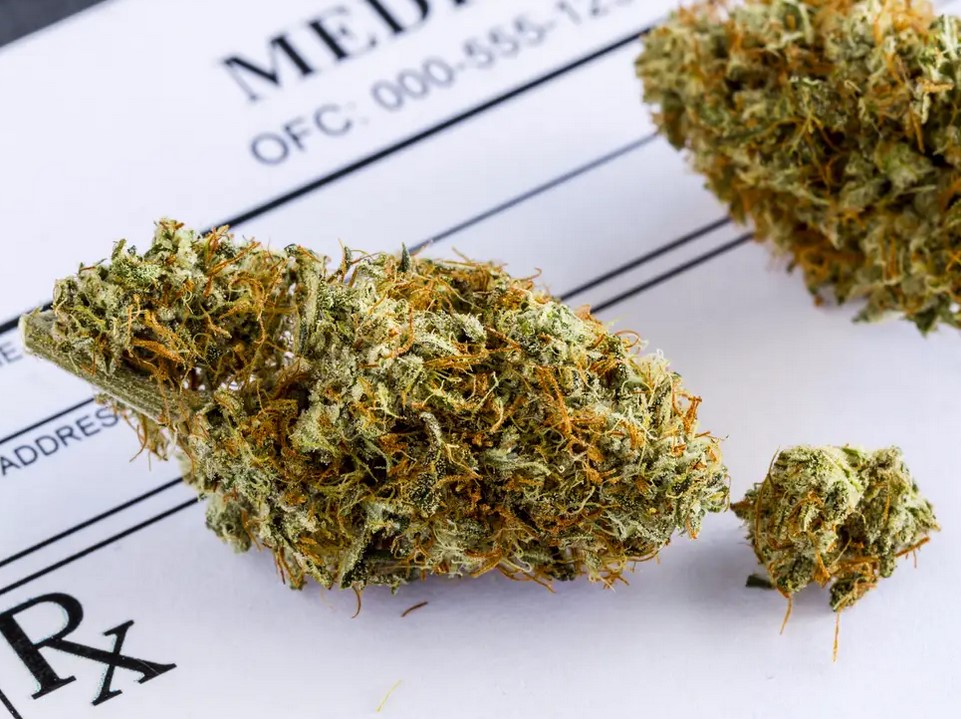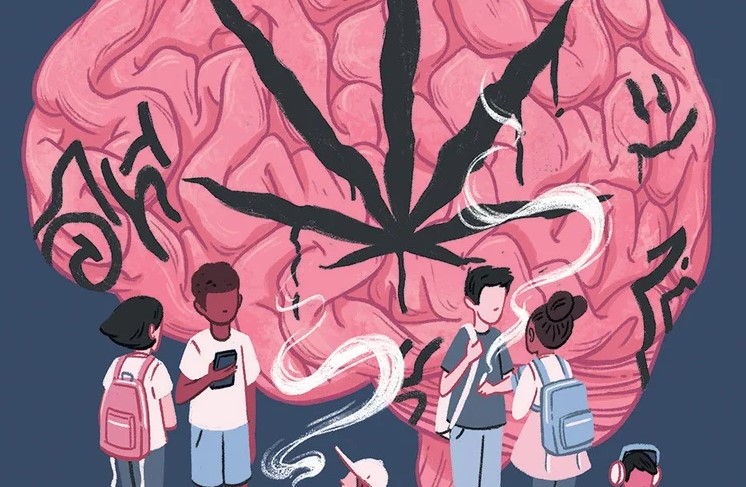Non classé
How Marijuana Affects Your Mind and Body
Marijuana, also known as cannabis, herbe, dope, grass, and a slew of other names, is produced from the cannabis plant. It may be inhaled, smoked, vaped, or eaten. Marijuana is popular among many individuals for pleasure and entertainment. Certain doctors, on the other hand, give it for a variety of ailments and symptoms.
What’s the definition of cannabis?

Cannabis is a genus of three plants with psychotropic effects known as Cannabis sativa, Cannabis indica, and Cannabis ruderalis. When the flowers from these plants are picked and dried, you have one of the world’s most popular illicit drugs. It’s called marijuana by some people, while others use the terms cannabis or herb.
Cannabis has been called many different things throughout history. As marijuana becomes increasingly legal, its names are changing. Today, many people use the term cannabis to refer to marijuana. Some feel that referring to it as “cannabis” is more neutral than terms like “weed” or “pot,” which have been linked with illegal behavior in some people’s minds. In addition, owing to its racist history, the word “marijuana” has fallen out of favor.
Cannabis is typically used to alleviate tension and stress. It’s also utilized to treat a range of health issues, including chronic pain, glaucoma, and anorexia, in several US states. Cannabis is derived from a plant and is thus natural, yet it can have significant effects that are both positive and negative.
What Does Marijuana Do?
THC binds to receptors in the membranes of certain brain nerve cells, triggering a cascade of cellular events that lead to marijuana’s euphoric high. People use cannabis since it makes them feel happier and less tense. Depending on the amount of THC present, euphony, visions, and paranoia may all be produced as symptoms.
Marijuana is most often consumed via smoking. It’s frequently rolled into a “joint,” which is then transformed into a “blunt” from an empty cigar casing, or it’s smoked in a pipe or water pipe bong.
Another popular way of ingesting cannabis is through smoking or eating foods made with THC-rich resin extracted from the plant. It may also be cooked into cakes, cookies, or sweets (edibles).
Marijuana contains chemicals that change both the brain and the body. It may be habit-forming and have a toxic effect on certain individuals’ health.
You Can Get “High”
The majority of people use marijuana for precisely this purpose. THC, the main psychotropic component, activates your pleasure brain region. This activates the release of dopamine, a neurotransmitter that induces euphoria and calmness.
The half-life of THC is about 30 minutes. If you use or smoke marijuana, the chemical may enter your circulation rapidly enough to produce a high in seconds or minutes. Around 30 minutes after consuming cannabis, its level reaches its peak, and the effects generally last between 1 and 3 hours. It might take many hours for you to fully sober up after smoking or eating marijuana recreationally. Most doctors are unfamiliar with it, and you may not always know how potent your recreational cannabis is.
It May Affect Your Mental Health
Marijuana isn’t for everyone. It can induce anxiety, dread, or panic in some people. Marijuana usage might raise the risk of clinical depression and exacerbate existing mental issues. Scientists aren’t sure why yet. In high doses, it might make you paranoid and cause you to lose touch with reality, hearing or seeing things that don’t exist.
Your Thinking May Get Distorted
Marijuana has an impact on your view and judgment. The influence depends on things like the potency of your marijuana, how you took it, and how much marijuana you’ve smoked previously. It may:
- Heighten your senses
- Distort your sense of time
- Hurt your motor skills and make driving more dangerous
- Lower your inhibitions so you may have risky sex or take other chances
You May Get Hooked
Marijuana addiction affects one in ten individuals at some stage during their lives. That implies you can’t stop using it even if it ruins your relationships, job, health, or finances. The risk of addiction rises with each year that marijuana is used early in life and more frequently. If you start using marijuana when you are under the age of eighteen, the chance of becoming addicted is 1 in 6. It may be as much as 1 in 2 among those who use it every day.
You could become physically dependent on marijuana as well. Your body may enter withdrawal, causing you to be irritable, restless, unable to sleep, and forgetful about food. Learn how to spot the warning signs of marijuana addiction.
It May Impair Your Brain
According to a study published in the Journal of Addiction Medicine, smoking cannabis makes it more difficult for people to focus, learn, and recall information. This appears to be a temporary adverse effect that persists at least 24 hours after you quit smoking.
While marijuana use has some short-term negative effects, it may have more long-term consequences if used excessively. Marijuana’s physical effect on the brains of certain teenagers has been established through tests with some but not all young people. They had less connection in regions of the brain involved with attention, learning, and memory, as well as lower IQ scores in particular individuals.
Your Lungs May Hurt
Cannabis smoke might irritate and inflame your lungs. If you use it on a regular basis, you may develop the same respiratory ailments as a smoker. That could indicate a persistent hacking cough with yellow mucus. Because THC reduces users’ immune systems, their respiratory tracts are more susceptible to infections.
It May Ease Your Pain and Other Symptoms
In nearly every state, medicinal cannabis is now permitted in some form. Marijuana for recreational use has been legalized in 10 states and the District of Columbia. The federal government’s ban on marijuana, however, has made it difficult to study its effects on individuals. Medicinal marijuana appears to help:

- Ongoing pain
- Stiff muscles or muscle spasms from multiple sclerosis. People with MS report stronger improvements compared to measurements by experts
- Sleep problems for those with fibromyalgia, MS, and sleep apnea
- Anxiety
- Loss of appetite and weight loss in people with AIDS
- Nausea or throwing up from chemotherapy
- Seizures from epilepsy
- Dravet syndrome or Lennox-Gastaut syndrome
You May Feel Hungrier
Many users of cannabis notice an increase in their hunger. This is known as “the munchies.” Some study indicates that it may aid those suffering from AIDS, cancer, or other illness by helping them gain weight. Researchers are researching this and whether it’s safe.
It May Harm Your Heart
Marijuana makes your heart work more. The typical heart rate is around 50 to 70 beats per minute. However, for 3 hours after the effects of marijuana take hold, the heart can beat 70 to 120 times each minute, which is considerably higher than usual. The extra souche and tar and other chemicals in marijuana may raise your risk of a heart attack or stroke. If you’re older or have pre-existing heart issues, the danger is even greater.
It Intensifies Alcohol’s Dangers
There are more than 14 million people who drink on a regular basis in the United States. More than 10 percent of drinkers have used marijuana in the previous year. When cannabis is mixed with alcohol, the risk of drunk driving, legal, professional, or personal difficulties roughly doubles when compared to drinking alone.
Your Newborn Might Be Underweight
Marijuana smoking by expectant mothers has been linked to an increased chance of having underweight or prematurely born children. However, it’s unclear whether these youngsters are more prone to have difficulties in school, use drugs, or other problems in their lives as they grow older.
Connection to Cancer Is Unclear
Marijuana smoking has not been linked to lung, head, or neck cancer yet. It’s conceivable that long-term cannabis use might contribute to one type of testicular cancer. We don’t know enough about whether cannabis causes additional malignancies, including:
- Prostate
- Cervical
- Bladder
- Non-Hodgkin’s lymphoma
What’s CBD?
CBD is a chemical produced from the cannabis and hemp plants. It will not make you high. CBD oil and other forms of CBD can be produced from it. Some individuals utilize CBD to treat discomfort, epileptic seizures, and other health issues. However, researchers are uncertain about how well it works or whether it is safe over long periods of time. Because of limited government monitoring, you might not always know what you’re buying when purchasing products containing CBD
Ways to Use Marijuana
You can use pot in a variety of ways. Smoking usually offers the quickest way to feel its effects:
- Rolled cigarettes
- Small handheld pipes
- Water pipes, called a bong
- A cigar that has been hollowed out and refilled with marijuana, called a blunt
- Sticky resins derived from the cannabis plant. Resins are frequently high in THC and may contain significantly more than ordinary marijuana.
Cannabis has been used as a spice for millennia. It is also added to sweets, cookies, cakes, and alcoholic beverages in addition to being consumed as a meal seasoning. Because marijuana must pass through your digestive system before entering your circulation, eating and drinking the drug delays the high. As a result, you might experience anything from 30 minutes to 2 hours after ingesting cannabis edibles. Edibles provide an enhanced sensation that lasts longer than smoking or vaporizing marijuana – sometimes up to 8 hours – which makes them more pleasurable.


